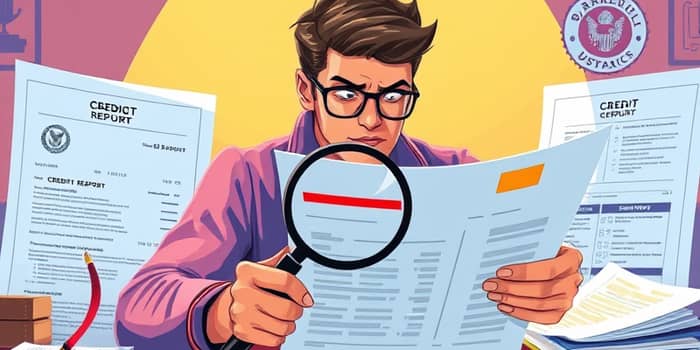
Errors on your credit report can silently undermine your financial health. Disputing inaccuracies through the right channels ensures you regain control and protect your future.
Your credit report influences everything from loan approvals to job applications. Even a single incorrect entry can lower your score, raise interest rates, or prevent you from securing a mortgage.
By addressing mistakes promptly, you not only improve your creditworthiness but also protect your financial reputation. Regularly reviewing reports from Experian, Equifax, and TransUnion allows you to spot inconsistencies before they cause significant damage.
Using the official dispute portals provided by each credit bureau ensures your case is documented and handled under the Fair Credit Reporting Act (FCRA). Avoid third-party services that may charge fees or make unrealistic promises.
For consumer reporting agencies like ChexSystems or Early Warning Services, use their dedicated phone lines to submit disputes directly and obtain documentation of your request.
Follow these clear steps to ensure your dispute is processed efficiently and accurately:
The bureau must acknowledge your dispute within five business days and complete an investigation, typically within 30 days.
If additional time is needed, the bureau will notify you and may extend the investigation by 15 days with proper justification.
A well-crafted letter can make all the difference. Include the following elements to strengthen your case:
Remember to use documentation and a detailed description for every item you challenge. Precision reduces the chance of your dispute being labeled frivolous.
Once filed, the credit bureau initiates an investigation under the FCRA. They reach out to the information provider (creditor or lender) and share your evidence. The provider is required to review the materials and respond within the legally mandated timeframe.
If the bureau determines an error exists, it must update your credit report accordingly and provide you with a free, updated copy.
In cases where the provider verifies the accuracy of the original entry, you can still add a brief statement of dispute that will remain on your report. This ensures future reviewers see your perspective, even if the negative item remains.
The Fair Credit Reporting Act grants you powerful rights to maintain the accuracy of your credit file. Key protections include:
You can also request that creditors who received your erroneous report in the past six months (or two years for employment) be informed of the changes.
Disputes can be rejected if they lack clarity or documentation. Avoid these pitfalls:
By steering clear of these errors, you increase the likelihood of a swift and favorable outcome.
Millions of Americans discover mistakes on their credit reports each year. By taking proactive steps—reviewing reports, gathering evidence, and leveraging the official channels—you assert your rights and strengthen your financial position.
Always remember: disputing credit report errors is a free and effective way to protect your future. Start today by obtaining your reports and challenging any inaccuracies with confidence and authority.
References













